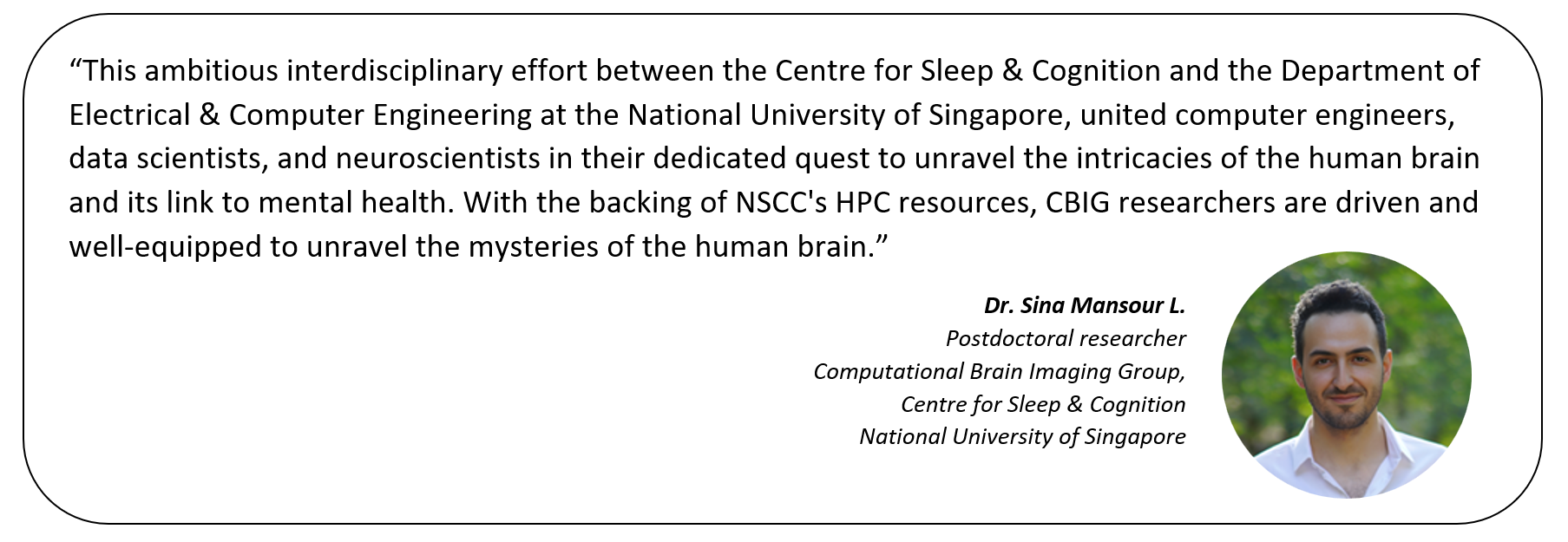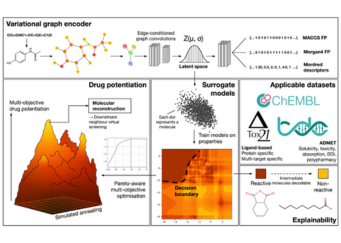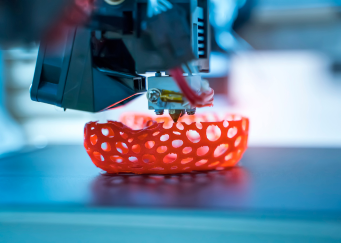Researchers from NUS are leveraging supercomputing to develop better strategies for prevention and treatment to mitigate the impact of mental illness.
The human brain is a marvel of biological complexity, comprising a network of hundreds of billions of neurons. This intricate web of neural interactions orchestrates every facet of human behaviour and cognition, shaping our daily lives in profound ways. However, the prevalence of mental health concerns such as anxiety, depression, and dementia can cast a shadow over these lives, which therefore emphasises the urgency of gaining a deeper understanding of the brain’s inner workings.
One promising avenue for progress lies in the exploration of brain biomarkers. To this end, the Computational Brain Imaging Group (CBIG), led by A/Prof Thomas Yeo at the Centre for Sleep & Cognition and the Department of Electrical & Computer Engineering at the National University of Singapore, embarked on a journey to unlock the secrets of the human brain with the aid of supercomputing resources.
The Research
In the last decade, medical imaging technologies, such as magnetic resonance imaging (MRI), have undergone remarkable advancements. These technologies empower researchers to acquire detailed information about both the structure and function of the brain. In parallel, collaborative efforts by researchers worldwide have amassed large-scale population brain-imaging data. This invaluable data resource holds hundreds of thousands of individual brain imaging scans. However, the sheer volume and complexity of the data necessitates the use of powerful computational capabilities and substantial storage capacity.
This is where the supercomputing resources provided by the National Supercomputing Centre (NSCC) Singapore proved indispensable. By utilising NSCC’s high-performance computing (HPC) resources, CBIG researchers were equipped to process and analyse the vast troves of brain imaging data. Through such computational investigations, the team was able to uncover biologically relevant biomarkers of mental health, offering a direct link between changes in the brain and psychiatric symptoms. These biomarkers, in turn, fostered a deeper knowledge about the diverse nature of mental illnesses. Furthermore, advanced machine learning algorithms allowed for the development of personalised treatments, offering targeted brain stimulation to individuals suffering from mental disorders.
The Approach
Data Processing: Leveraging NSCC’s HPC resources, immense volumes of raw MRI imaging data (often measuring in hundreds of terabytes) were processed. These pre-processed data repositories served as inputs for multiple subsequent investigations.
Machine Learning: Employing complex machine learning and deep learning tools, CBIG developed pipelines to map the structural and functional organisation of the brain. These pipelines enabled the prediction of how changes in brain structure and function relate to various pathologies, providing critical insights into mental health.
Artificial Intelligence (AI): Using AI techniques, specific brain regions can be identified as targets for transcranial magnetic stimulation. The development of such precise targeting methods promises a potential enhancement of treatment responses in patients.
The Impact
BIG’s research is a significant step towards the collective aspiration of exploring new frontiers in understanding mental disorders. The derived knowledge will pave the way for improved prevention and treatment strategies, mitigating the impact of mental illness on society and families and ultimately providing a brighter future for those impacted by these conditions.

To find out more about the NSCC’s HPC resources and how you can tap on them, please contact [email protected].
NSCC NewsBytes October 2023
Other Case Studies
Advancing Drug Discovery Research using NSCC HPC resources
Researchers from Nanyang Technological University (NTU) are applying variational graph encoders as an effective generalist algorithm in computer-aided drug design (CADD)....
Tackling antibiotic resistance with HPC
Tackling antibiotic resistance with HPC Antimicrobial resistance (AMR) is a global healthcare issue, which has resulted in 1.27 million deaths in 2019 and is expected to cause 10...
Using Digital Twin Technology to Optimise the Industrial 3D Printing Process
Researchers from the Institute of High-Performance Computing (IHPC) are utilizing supercomputers to create a digital twin that furnishes users with comprehensive information...


